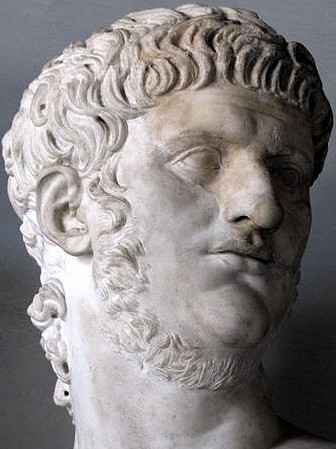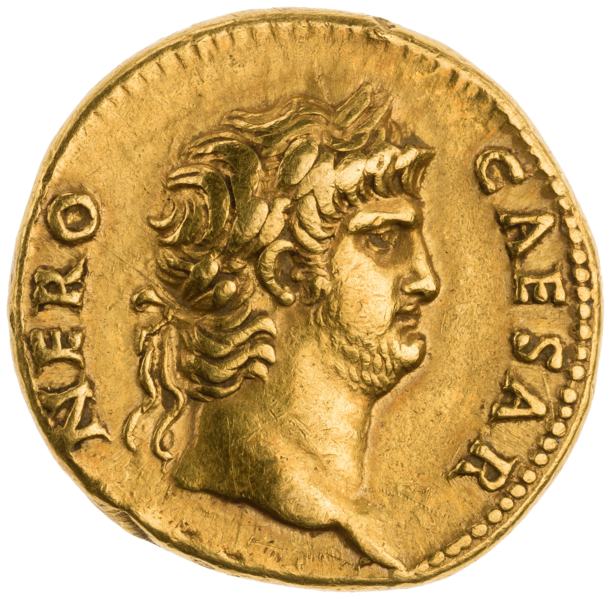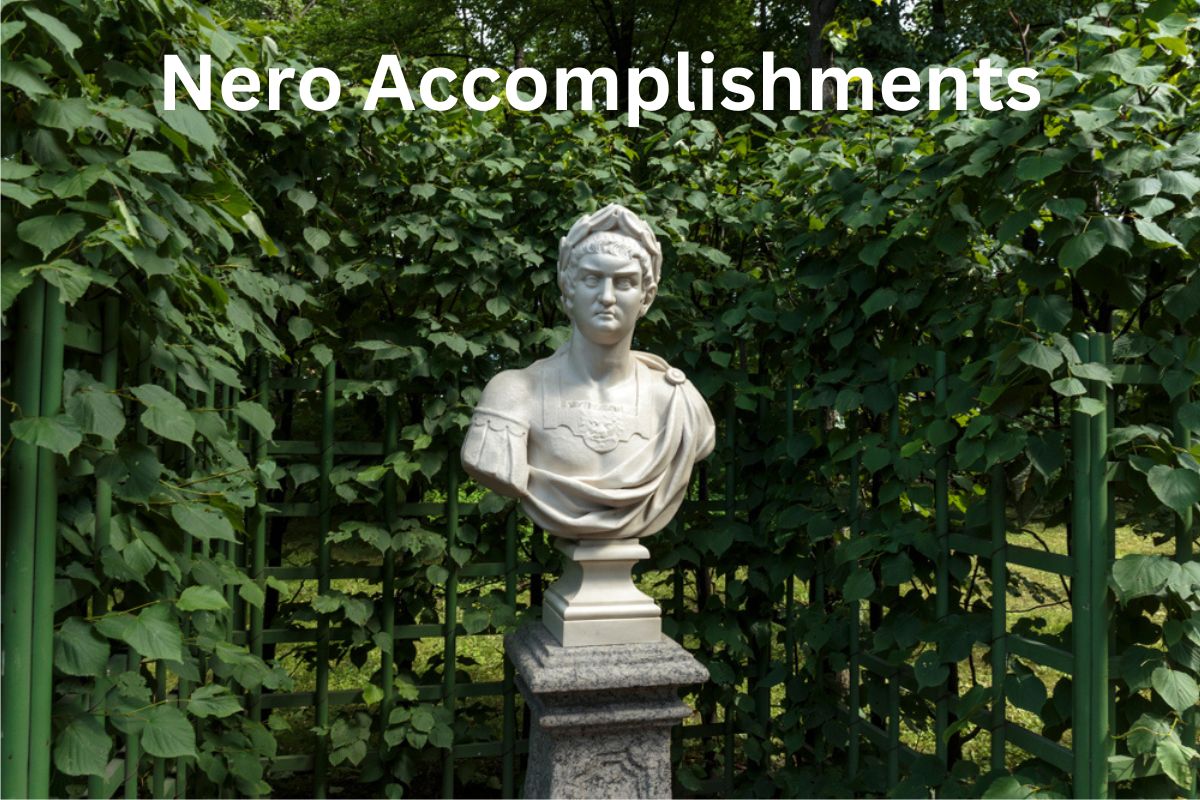Nero, the fifth Roman emperor, ascended to the throne in 54 AD at the young age of 16. Initially met with optimism and hope, Nero’s reign was marked by his diverse accomplishments and initiatives as a leader.
He was a patron of the arts, actively supporting music, theater, and poetry. Nero undertook ambitious construction projects, including the renowned Domus Aurea palace complex. In the face of the devastating Great Fire of Rome, he organized firefighting efforts and implemented urban planning reforms.
Nero also focused on diplomacy, maintaining peaceful relations with neighboring kingdoms. Additionally, he introduced financial reforms, undertook public works projects, implemented legal reforms, expanded the empire’s territory, and pursued policies to preserve traditional Roman religious practices.
Despite the controversies and criticisms that surrounded his rule, Nero left a lasting impact on Roman history through his multifaceted leadership.
Accomplishments of Emperor Nero
1. Ascended to the Roman throne
Nero’s ascent to the Roman throne in 54 AD marked the beginning of his reign as the fifth Roman emperor. At the age of 16, he succeeded his stepfather Claudius, who had adopted him as his heir.

Nero’s ascent to power was initially met with optimism and hope, as he was seen as a young and energetic ruler with the potential to bring about positive changes to the empire.
2. Supported and patronized arts and culture
Nero had a deep appreciation for arts and culture and actively supported and patronized various artistic endeavors during his reign.
He particularly had a passion for music, theater, and poetry. Nero himself was a skilled lyre player and singer, and he often participated in public performances and artistic competitions.
He organized lavish festivals, sponsored theatrical productions, and encouraged the work of prominent artists and poets.
3. Initiated grand construction projects, including the Domus Aurea
One of Nero’s notable accomplishments was his ambitious construction projects, which aimed to transform Rome into a magnificent city. The most famous of these projects was the Domus Aurea, or the Golden House.
The Domus Aurea was an extravagant palace complex that covered a vast area of land in the heart of Rome. It featured stunning architecture, lush gardens, artificial lakes, and even a colossal statue of Nero himself.
The palace was adorned with intricate frescoes, mosaics, and luxurious decorations. The construction of the Domus Aurea had a significant impact on Roman architecture and inspired future generations of builders and architects.
4. Organized firefighting efforts and implemented urban planning after the Great Fire of Rome
In 64 AD, a devastating fire broke out in Rome, known as the Great Fire of Rome. Nero took swift action to organize firefighting efforts and provide relief to the affected citizens.

He personally coordinated the response, organizing fire brigades and ordering the construction of firebreaks to prevent the spread of the flames.
After the fire, Nero implemented urban planning reforms aimed at preventing future fires. He ordered the widening of streets, imposed regulations on building materials to make them fire-resistant, and established a new organization to oversee the maintenance of the city’s infrastructure.
5. Maintained peaceful diplomatic relations with neighboring kingdoms
Nero focused on diplomacy and sought to maintain peaceful relations with neighboring kingdoms and tribes. He negotiated with the Parthian Empire in the East to secure a stable frontier and prevent conflicts.
Nero also intervened in the affairs of Armenia, a key buffer state between the Roman and Parthian Empires, to maintain Roman influence in the region. His diplomatic efforts aimed to ensure stability and secure the borders of the Roman Empire.
6. Implemented financial reforms to improve state finances
Nero introduced various financial reforms during his reign to combat corruption and improve the state’s finances. He implemented new tax systems, cracking down on tax evasion and imposing stricter regulations on tax collection.
Nero also undertook efforts to regulate the minting of coins to maintain their value and prevent debasement. These financial reforms aimed to stabilize the economy, increase revenue for the state, and restore confidence in the Roman currency.
7. Undertook public works projects, such as roads, bridges, and aqueducts
Nero was committed to improving the infrastructure of the Roman Empire. He initiated several public works projects, including the construction of roads, bridges, and aqueducts. These projects aimed to enhance communication and facilitate trade and transportation throughout the empire.
Nero’s efforts contributed to the overall development and connectivity of the Roman Empire, allowing for the efficient movement of goods, troops, and information.
8. Introduced legal reforms to protect the rights of slaves and regulate the Roman elite
Nero implemented legal reforms aimed at addressing social issues and improving the administration of justice. He introduced laws to protect the rights of slaves, granting them certain legal protections and mitigating the severity of punishments they could receive.
He also established regulations to govern the behavior of the Roman elite, aiming to curb corruption and maintain social order. These legal reforms represented an attempt to create a fairer and more equitable legal system within the Roman Empire.
9. Expanded the Roman Empire’s territory through military campaigns
Nero was involved in various military campaigns aimed at expanding the territorial control of the Roman Empire. One notable campaign was the Roman invasion of Britain, which began during his reign.
While the conquest was not completed during Nero’s lifetime, his decision to launch the campaign laid the foundation for the eventual Roman control over Britain.
Additionally, Nero maintained Roman control over various territories in the East through diplomacy and military action, ensuring stability and extending the reach of the empire.
10. Implemented policies to preserve and promote traditional Roman religious practices
Nero was deeply interested in religious matters and implemented policies to preserve and promote traditional Roman religious practices. He reinforced the worship of traditional gods and goddesses and actively participated in religious rituals and ceremonies.
Nero sought to maintain the favor of the gods for the empire and its people. His religious policies aimed to uphold the traditional Roman values and maintain the stability and prosperity of the Roman state.
